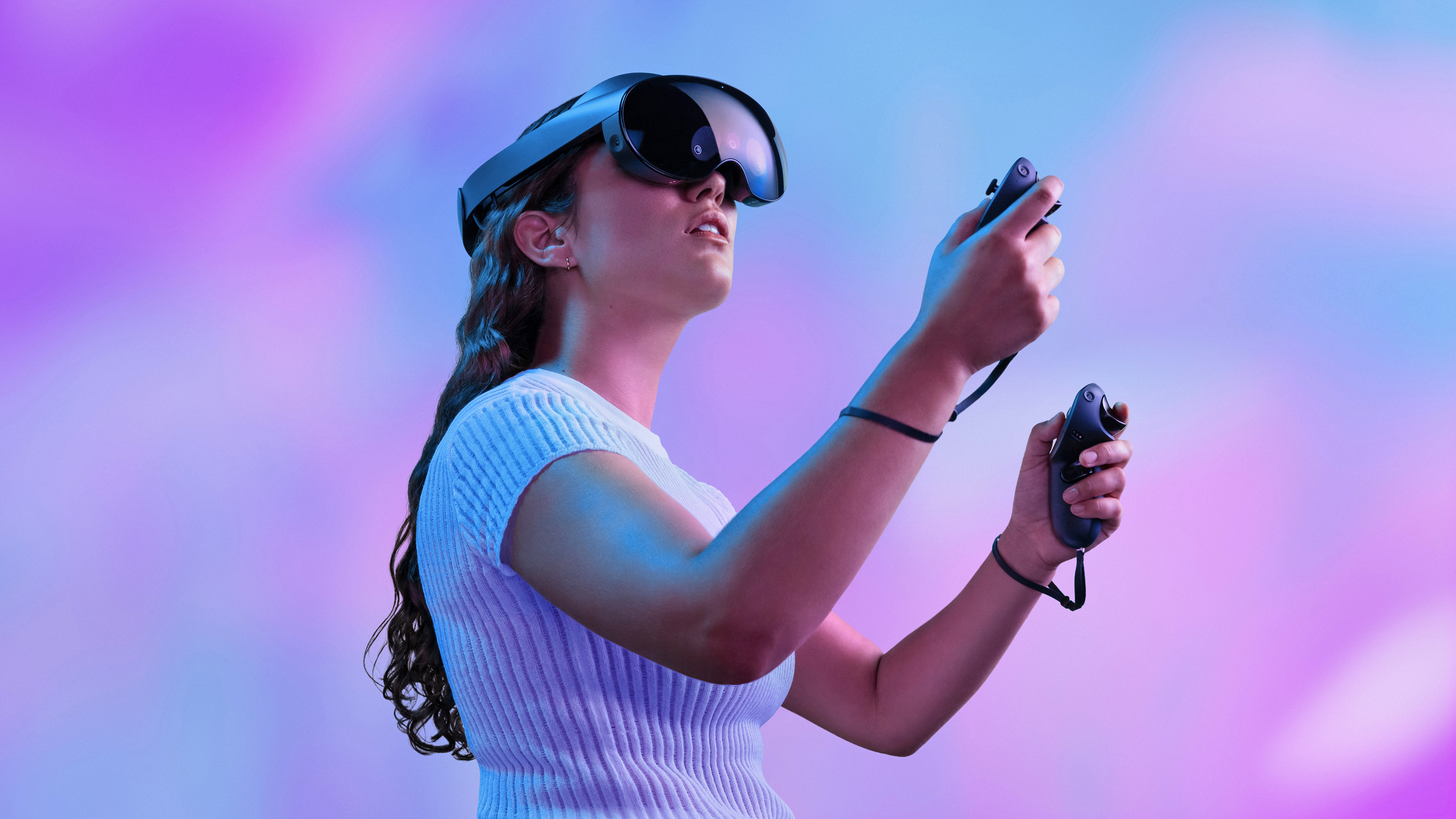Meta Quest Pro explained – the new VR headset explored
Get up to speed on the Meta Quest Pro VR headset now


Get all the latest news, reviews, deals and buying guides on gorgeous tech, home and active products from the T3 experts
You are now subscribed
Your newsletter sign-up was successful
After months of leaks and the odd prototype left in a hotel room, the company formerly known as Facebook has unveiled its most advanced and most expensive VR headset yet, the Meta Quest Pro. Arriving months before Sony's PSVR 2 and Apple's AR/VR headset it's one of the best VR headsets you can buy, but that doesn't necessarily mean you should rush out and order one.
Here's the executive summary of why it's great, and why it might not be a great buy.
The Meta Quest Pro is seriously expensive
With a price tag of £1,499 / $1,499 the Meta Quest Pro is more than four times the price of the Meta Quest 2, Meta's current consumer headset. There's only one model so far, with 12GB of RAM and 256GB of storage.
The Meta Quest Pro is seriously powerful
The Meta Quest Pro isn't just a virtual reality headset. It's a mixed reality headset, which means it's also designed to do augmented reality. That's when computer visuals are overlaid over real-world scenes, either by displaying them on transparent lenses or by displaying them on top of images from the device's camera. The Quest Pro uses the latter option with multiple cameras showing the world around you on its screens.
To power all of that there's a new Qualcomm Snapdragon XR2+ processor which, according to Meta, is 50% faster than the one in the Quest 2. There are also ten sensors for the VR/AR applications.
The displays are quantum dot LCDs with 37% better pixel density than the Quest 2 and sharper visuals as a result. They're lighter than in the Quest 2, and unless you snap on the included light blockers you can see past them with your peripheral vision.
The downside to the extra power is that it also means extra battery drain. Battery life is only 1 to 2 hours and the headset will then need another two hours to recharge.
Get all the latest news, reviews, deals and buying guides on gorgeous tech, home and active products from the T3 experts
The Meta Quest Pro controllers are clever too
The new controllers are more comfortable than before, and they have three built-in sensors apiece that deliver full 360-degree motion tracking. According to Meta they can track you in 3D separately from the headset, which is great news for anyone with a detachable head.
The Meta Quest Pro doesn't really have a compelling reason to buy it yet
It's all very impressive, but there's one big question hanging over Meta's new headset: what's it actually for?
One of the key apps being pushed here is Horizon Workrooms, a virtual meeting space – but with terrible timing it emerged a few days ago that Meta can't persuade its own employees to use the Horizon app because it's terrible, buggy, and terribly buggy. As one internal memo put it: "The simple truth is, if we don’t love it, how can we expect our users to love it?”
I'm as excited about VR/AR/MR as the next easily excited person, but fifteen hundred quid is a big ask for a headset with no obvious killer app when other high-end headsets such ash the Vive Pro 2 are half the price. We also know that PSVR 2 is imminent and likely to cost considerably less than this Meta.
It does seem to me that the Meta Quest Pro is more about its potential than what it can actually deliver right now: it's a headset for developers to experiment with, packed with technology that'll end up in more affordable headsets in the not-too-distant future. Meta is betting big that its vision of the metaverse is the future, and if that's true then this is the first big step into it. But maybe it's wise to let Meta gamble with its own money for a while before risking any of yours.

Writer, musician and broadcaster Carrie Marshall has been covering technology since 1998 and is particularly interested in how tech can help us live our best lives. Her CV is a who’s who of magazines, newspapers, websites and radio programmes ranging from T3, Techradar and MacFormat to the BBC, Sunday Post and People’s Friend. Carrie has written more than a dozen books, ghost-wrote two more and co-wrote seven more books and a Radio 2 documentary series; her memoir, Carrie Kills A Man, was shortlisted for the British Book Awards. When she’s not scribbling, Carrie is the singer in Glaswegian rock band Unquiet Mind (unquietmindmusic).